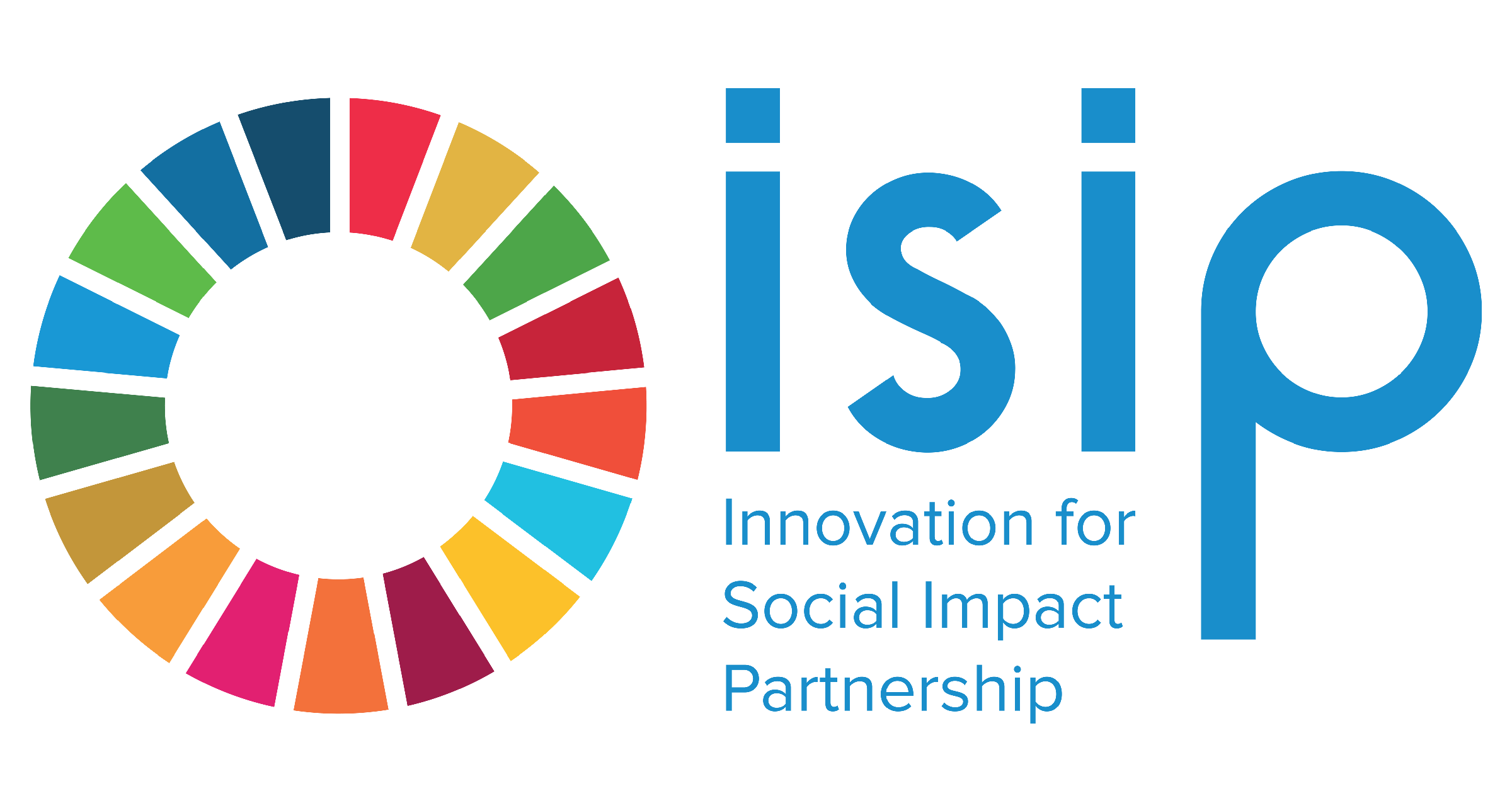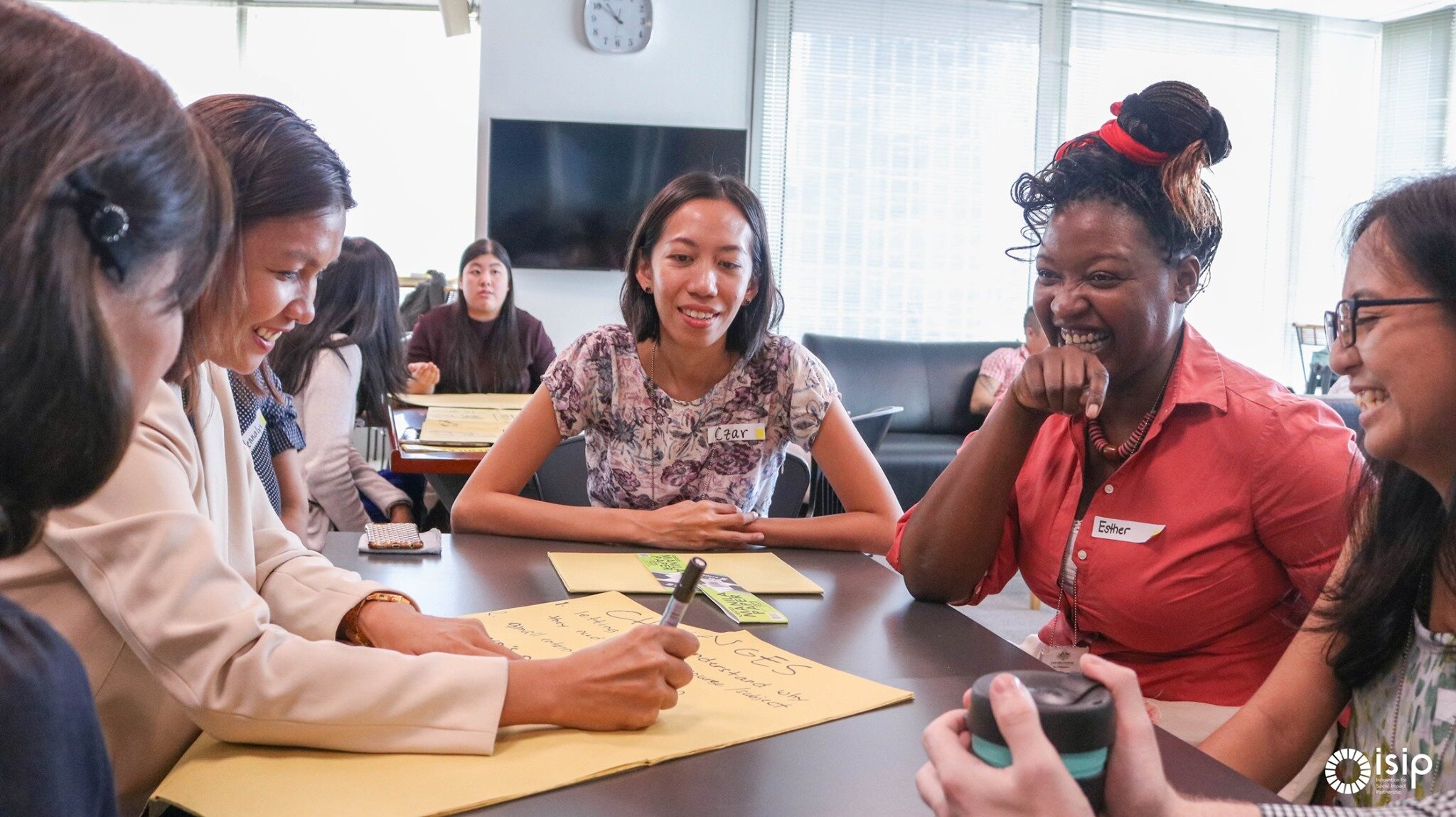A Visiting Professor's Journal: Esther Obonyo
The 2020 deployment of Visiting Professors has officially begun. But because of the COVID-19 pandemic, the international professors will only be supporting the host Philippine university online. The Innovation for Social Impact Partnership’s (ISIP) Visiting Professors activity aims to support higher education institutions (HEIs) in the Philippines by bringing in international expertise and global perspective when it comes to implementing technopreneurship activities and university-based incubators.
One of the international professors who was deployed in 2019 is Dr. Esther Obonyo, an Associate Professor of Engineering Design and Architectural Engineering from Pennsylvania State University. She was deployed to two Philippine universities: Saint Louis University in Baguio City and Batangas State University in Batangas City to support them in integrating social impact in their Technopreneurship 101 subject. Let’s learn more about her experiences being deployed to these universities, as told by Esther herself.
—
Living Life in the Fastlane at Batangas State University and Saint Louis University
Through my educational and professional experiences, I have had the privilege of participating in impact-driven initiatives in different parts of the world. I have observed that there is a common thread of social inequalities that has resulted in livelihood challenges in both the developed and developing/ emerging economies. Lack of skills, more specifically, the inability to participate in the capitalistic economy system perpetuates the social inequality problem. Being part of the ISIP Visiting Professors Program will give me an opportunity to contribute to efforts directed at addressing this problem through educating the youth and empowering them with the gift of the entrepreneurial mindset. This will uniquely position them to take charge of their destiny through creating jobs for themselves and their peers.
It is widely acknowledged that higher education institutions are crucial to economic development and prosperity because of their role as incubators of new ideas, inventions and solutions championed by faculty and students. The needs assessment as articulated by both Batangas State University and Saint Louis University affirmed their commitment towards being part of a network of universities that work synergistically with the government, private sector and non-profit organizations for the greater good of the community at large. Entrepreneurship is one of the pillars for Penn State’s engagement with the community. Penn State has also amplified the role of strategic partnerships in the efforts directed at addressing the most pressing societal challenges. Contributing to the realization of the ISIP program at the two universities is, therefore, closely aligned with the global engagement roles that I perform at Penn State. Because Penn State does not plan to set up campuses outside the US, our value proposition for global impact predicates on building strategic partnerships with institutions such as BatStateU and SLU. Against this backdrop, I embarked on the ISIP October 2019 visit with full confidence that it would be a mutually rewarding experience for my university and the two host institutions.
“It is widely acknowledged that higher education institutions are crucial to economic development and prosperity because of their role as incubators of new ideas, inventions and solutions championed by faculty and students. ”
We kicked off the two-week visit on a high note with what I would like to think of a forum for giving some structure and definition to the “Gender Agenda for Innovation for Social Impact Partnership.” This was accomplished through an event hosted by the Australian Embassy and facilitated by PhilDev, with the UNDP representative in attendance. One of the key takeaways from the deliberations that ensued was the value of regular networking events where women from both the private sector and the university can share their experiences. The main constraints to and critical success factors for deploying sustainable and scalable social ventures play out in a similar manner in both settings. The kind of mentoring and coaching that can inspire more women to venture out of their comfort zones can be found through semi-structured conversations with people who are somewhat removed from what constitutes our “business as usual.”
Because of the recent extreme weather events, I was a little nervous about venturing outside of Manila. Thankfully, the drive to Batangas State went smoothly and things got better because I realized that the amount of time I was going to spend outside was significantly less than in Manila - I was in a city where traffic delay means getting to one’s destination 5 minutes or so behind schedule. From a programming perspective, BatStateU is further along in its entrepreneurial journey compared to several other universities having formally launched Technopreneurship 101. The challenge for them is getting faculty comfortable with teaching the social impact aspects of entrepreneurship, many of which are anchored principles that are more commonly taught in social science majors. One of the highlights for the week tag-teaming with Sir Albert to teach his students class. Initially the students were a little hesitant to discuss their ideas but after they observed that having an additional faculty’s perspective had opened the door to diversity of thoughts and opinions, there were more eager to share. The three hours slotted for the class went very quickly.
During the second week of my visit, I relocated to the mountainous and very scenic Baguio region for my deployment at Saint Louis University. The town was already in a full-swing Christmas mode with decorations, lights and the nativity scene having been staged pretty much everywhere. Retiring to a “Happy Holiday” setting at the end of each day was great for clearing my mind and preparing my thinking for the next day’s set of activities.
The SLU interactions were unique because of two primary reasons. Firstly, Technopreneurship 101 has not been taught giving us an opportunity to explore using social entrepreneurship to better align the course with the mission mandate of the institution. Secondly, I had the privilege and honor of participating in a government-facilitated, unscripted, radio interview alongside my colleagues from SLU and PhilDev. I was struck by the humility with which the team shared their accomplishment. They did not hold back – they shared the setbacks in a tone laced with the kind of “those who seek will find” kind of optimism.
During my visit, I saw the benefits of leadership done top-down and bottom-up from an operational perspective. At BatStateU both approaches were in effect thanks to Sir Albert playing a role that can be analogized to what a utility midfielder does in the soccer field. He has a senior university leadership role which gives him a seat at the table where BIG decisions regarding institutional priorities are made. He is the lead for the tech-hub who also has the experience of working as the University’s champion for extension work. Sir Albert is also hands-one at frontline interfacing with students as a teacher for the Technopreneurship 101 class.
The SLU experiences exemplifies the priceless value of leadership from a “boots on the ground” approach. Under the strong leadership of three dynamic ladies, otherwise known as the “Power Puff Girls,” the SLU TechHub commands respect not just within the University but has also been formally embraced by other institutions as a center of excellence for a network of universities in the region.
At both institutions, I saw sacrificial leadership being practiced. The people I interacted with had taken on some additional responsibilities to contribute to the success of entrepreneurship programs at their respective institutions. For example, Sir Alberts works very long hours to deliver on the demands of his three jobs - a senior administrator, TechHub Champion and a teacher. At SLU, the Power Puff Girls are juggling their teaching responsibilities with managing the day-to-day operations of the TechHub. They have taken on the extra responsibilities willingly and gladly because they believe that entrepreneurship infused with social innovation programming, can enhance their respective university’s impact on the health, wealth and well-being of the adjacent communities.
Penn State University has campuses in parts of the commonwealth of Pennsylvania that have many similarities to marginalized communities in developing and emerging economies. We have experimented with a few programs in these campuses. We have valuable insights on “what works” from these experiences that we can share with our counterparts in BatStatU, SLU and other universities. This notwithstanding, the spirit of resilience and tenacity among the Filipino faculty and students who I interacted with is truly exceptional. A few tears were shed during some of the difficult but necessary discussions concerning constraints and challenges, but there was always a very determined tone of “We are not going to give up on our dreams” underscoring the conversations.
The visit coincided with a rather busy time of the teaching semester for our respective universities and there has not been much action on the areas for further collaboration that we identified collaboratively. The next year will be an excellent time for us to revisit some of these priorities. I request that PhilDev help organize this call. On my part, I would like to develop a new 3-way, global engagement activity with my new friends at BatStateU and SLU. At their request, they wanted faculty and student exchange opportunities. This will require some seed funding particularly to help offset the costs for the first few BatStateU and SLU participants. We have also discussed doing joint Webinars. We will need help with the communication strategy.
“I have learnt through experience that the easiest way to dispel such feelings is through jumping into the deep end headfirst. This usually works better when a few people are willing to jump in together. ”
Having been trained in what is largely a quantitative discipline, I am very sensitive to the unspoken fears and misgivings among the engineering faculty and students when confronted with challenges that cannot be reduced to a mathematical equation very quickly. I have learnt through experience that the easiest way to dispel such feelings is through jumping into the deep end headfirst. This usually works better when a few people are willing to jump in together. During the entire visit, I was in good company. They did not allow me to take the plunge alone. I was surrounded the entire time by men and women who were willing to take the risk with me despite their fears and misgivings. We had a shared understanding that “Business as Usual” was not an option. We are willing to venture into uncharted territory with our students tagging along knowing fully well that the outcome will at times be a humbling, noble failure lesson. It is for this reason that I dub my two weeks in BatStateU and SLU as “unforgettable.” I would do it again in a heartbeat.
Dr. Esther Obonyo
Associate Professor
Engineering Design and Architectural Engineering
Pennsylvania State University
—
Esther will be returning this year as a Visiting Professor to support other Philippine universities. She will be virtually deployed again to two universities: Ateneo de Naga University in Naga City and Eastern Visayas State University in Tacloban City.
The Visiting Professors is one of the activities of the Innovation for Social Impact Partnership, a project co-implemented by UNDP Philippines and PhilDev Foundation, with generous support from the Australian Embassy in the Philippines.




